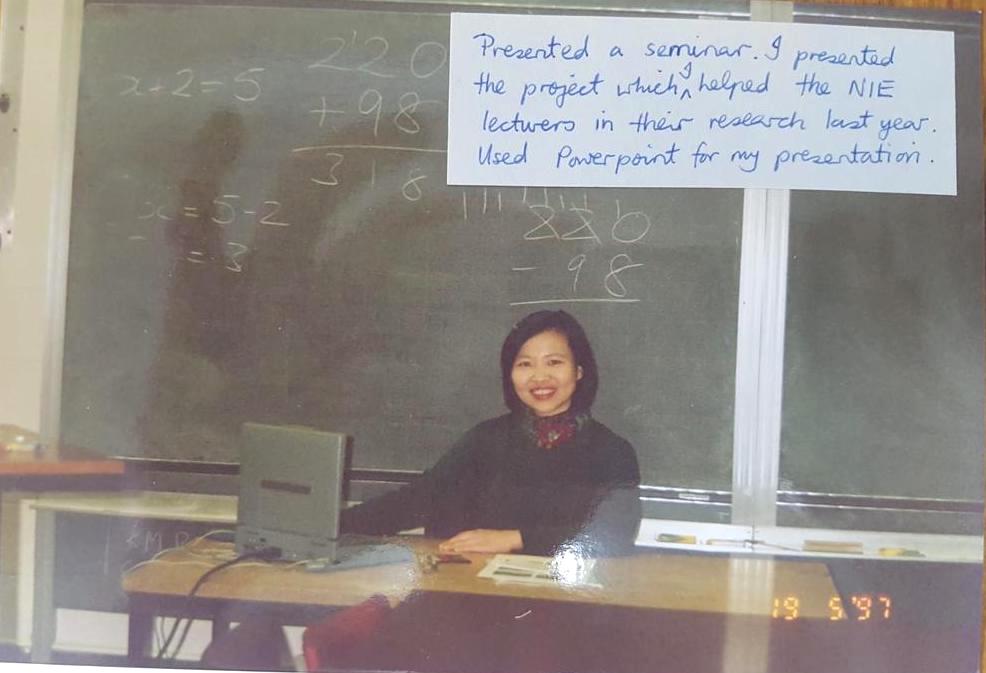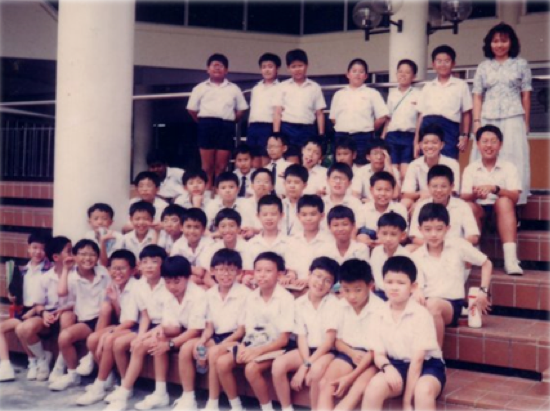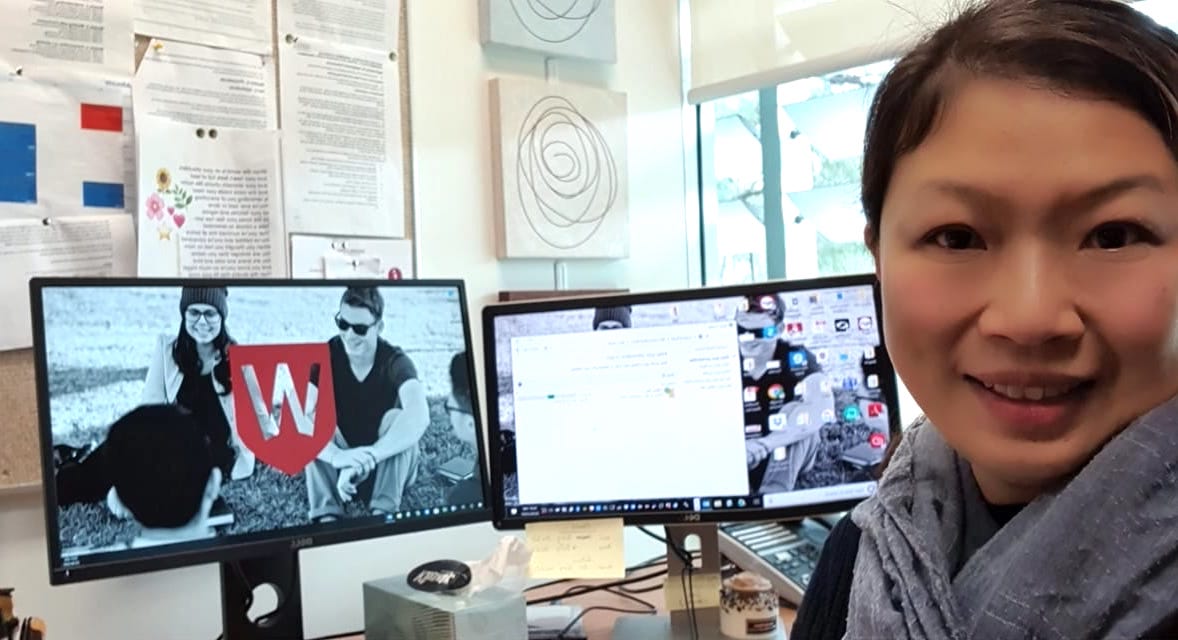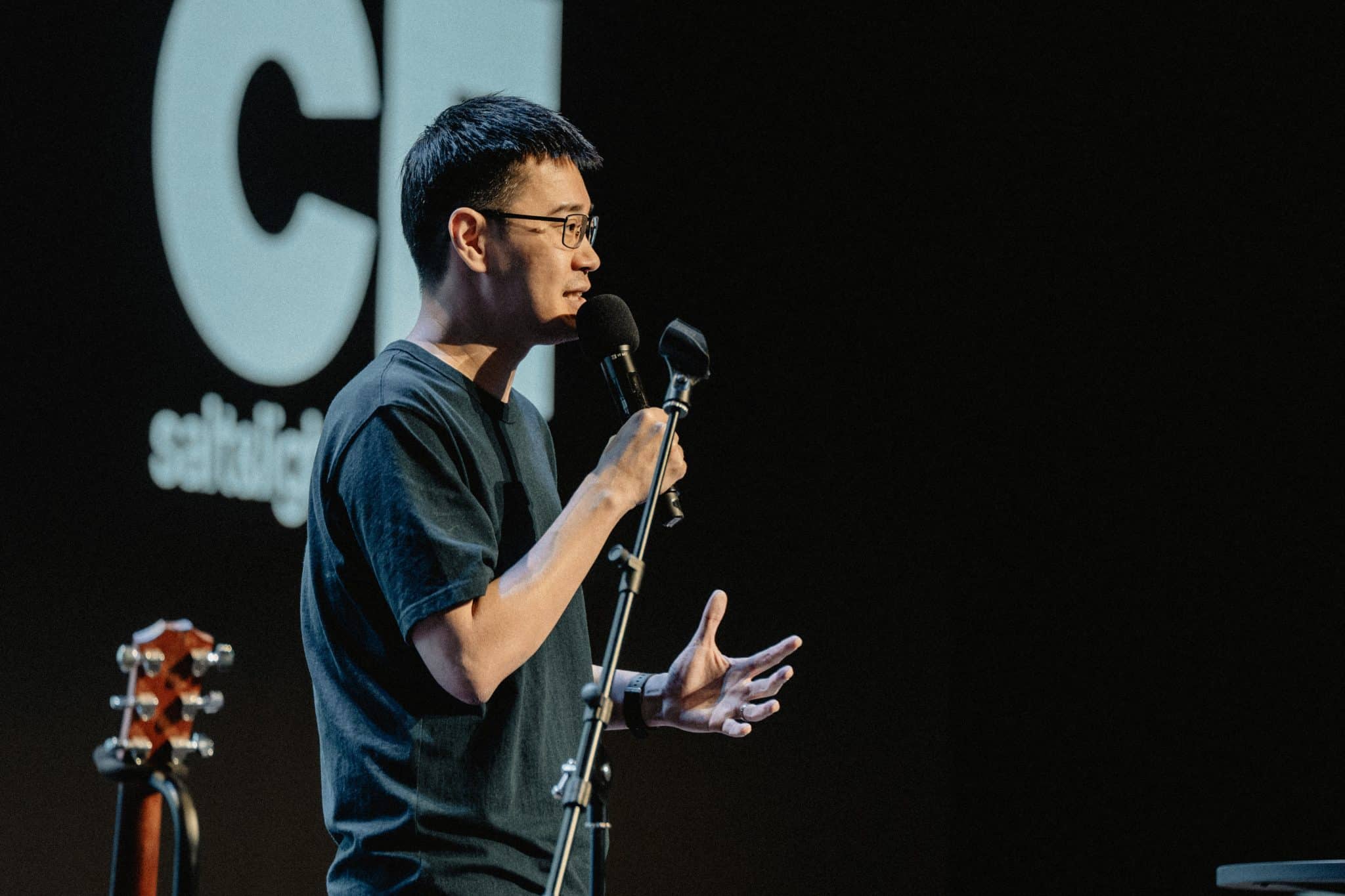“I honour God by honouring my students”: Soul engineers who model agape love
Salt&Light honours all educators for their dedication and service. Happy Teachers' Day!
by Tan Huey Ying // September 4, 2020, 3:22 pm

The students of the late Dr Teong Su Kwang (in photo) remember her by gathering to visit her grave every year. Photo courtesy of Morgan Zhou.
It has been 27 years since he graduated from primary school and 15 years since his form teacher passed away, but Morgan Zhou and several of his classmates still remember their teacher by gathering to visit her grave every year.
Zhou, who now teaches at the National Institute of Education (NIE), speaks fondly of the late Dr Teong Su Kwang, or “Miss Teong”, as her students address her.
“As children, you somehow know when someone genuinely cares for you and loves you,” Zhou said, describing Miss Teong as a warm and nurturing person who “cherished the holistic development of those under her charge”.
Zhou, 39, remembers the handwritten notes Miss Teong often gave her students – it was where he first learnt the Greek word, agape (meaning unconditional love), which she signed off every letter with.
“As children, you somehow know when someone genuinely cares for you and loves you.”
Conversations, ranging from Christian values to girl problems, also characterised her interaction with them.
But her influence and care did not end at his graduation.
At a class gathering more than 10 years later, Zhou reconnected with Ms Teong at a time when he was at a crossroads. He was about to graduate from university with a degree in business but Zhou had strong reservations about joining the rat race in a “deskbound office job”.
“So I poured out my burden to her,” said Zhou. Miss Teong not only shared her advice and perspective, she even took time to pray with and for him.

Morgan (back row, second from right) and some of his classmates in a photo taken at the cemetery in June 2019, where they paid respects to their late teacher. Not all are Christians but each man has felt the impact she left on them as impressionable 12-year-olds. They now make it a point to honour her for the legacy. Photo courtesy of Morgan Zhou.
Eventually, Zhou took up teaching and by the time he moved to NIE, had been the vice-principal at his alma mater for three years.
Not “just” a teacher
“Teachers impact students all the time – be it big or small – and these may not necessarily be known to the teacher,” said Dr Lynde Tan, a senior lecturer and researcher in pedagogy, which is the method and practice of teaching.
Despite all the teaching that happens, some things cannot be taught and must be caught.
In recent years, her research in the field has been gaining recognition and academic awards in journals.
But Tan, who is in her late 40’s, is not just about academic theory. She spent six years as a primary school teacher before eventually becoming a teacher educator, first in Singapore and now in Australia.
Tan calls teachers “soul engineers” because, despite all the teaching that happens, some things cannot be taught and must be caught.
Sometimes, it is so indirect that, by the time a “big” impact is felt, it could be even beyond your lifetime, she added.

Ms Teong (top right corner), as her students call her fondly, and Morgan Zhou’s Primary 6 class. Photo by Morgan Zhou.
While Tan has not managed to keep in touch with her first batch of students, she is connected with later batches through social media.
Fighting battles
Tan recalled her first posting to a primary school where her calling as a teacher was tested to its breaking point.
“I was traumatised, emotionally drained, and I wanted to quit,” she said. “I was very young – only 23!”
“I had to deal with students fighting, throwing chairs at one another … hiding a garden lizard inside my handbag.”
In 1997, fresh out of school herself, Tan was assigned a Primary 3 class with students who came from “very complex family backgrounds”.
Calls from the police were a regular occurrence and classroom management was an “everyday battle”. Once, several of her students were caught smoking and reading pornographic books at a void deck. Sometimes, unruly parents would show up outside her class and cause a ruckus.
Tan recalled: “I had to deal with students fighting, throwing chairs at one another … hiding a garden lizard inside my handbag.”
No relief teacher had stayed with them for more than three months – Tan was their first permanent teacher.
Sticking it out
Church and cell group, however, were her lifeline. “That was where I sought solace. Every week during worship, I would cry!”
“Church and cell group were her lifeline. “That was where I sought solace. Every week during worship, I would cry!”
Through prayer, fellowship and encouragement of her church friends, Tan soon decided that enough was enough – she decided to take the “spiritual” approach.
“I prayed and prayed and prayed. I’d go to school early and I remember walking up and down the corridor, just praying for them,” Tan recalled.
Before getting angry with a student, she would steel herself and silently pray a word of blessing over the child. And to help them feel a sense of belonging, Tan decorated the classroom at her own expense. She even read to them to help raise their literacy levels.
On Children’s Day, she gave every single student a small card with a present to affirm them.
“When they made cards for me, including the boys, it broke my heart.”
Tan even turned down a potential “escape” which offered her a posting to another primary school with the Gifted Education Programme. After rejecting it, Tan admitted, she “dragged her feet” to school for a “very long time”.
“I was very tempted,” Tan said. “But my possible departure would mean I had given up on my students, and I didn’t want them to think that way.
“A lot of them probably did not know how to receive, let alone express, love,” Tan shared.
By the end of the year, she had won them over. “When they made cards for me, including the boys, it broke my heart.”
No, thank you
Tan’s capability did not go unnoticed and she was often asked to take up leadership positions, such as head of department or even as vice-principal, at various points in her career.

A card that one of Dr Lynde Tan’s Primary 6 students gave her. To them, she is known as “Mrs Toh”. This card was from a later batch of students in a different school. Photo courtesy of Lynde Tan.
“I was never interested in the leadership roles and I did not follow my civil servant Current Estimated Potential (CEP) path.
Before getting angry with a student, she would steel herself and silently pray a word of blessing over the child.
“I couldn’t understand why I should take up an administrative role when I was good at teaching,” she said, adding that she wanted to go where God positioned her, not just where her CEP dictated.
What she did realise, however, was that she found joy and fulfilment in teaching teachers as a teacher educator.
Tan credits this to her principal who “constantly” pointed out things that she was good at, of which she had no cognition.
As she created new lesson materials in her primary school, Tan was often invited to run workshops as part of the teachers network to teach and share her ideas. Her principal encouraged her to do so and also invited Tan to share with other colleagues in the school.

Dr Lynde Tan, in her office in an Australian university where she is now a senior lecturer. Her students are teachers-to-be, preparing to enter Australian public schools where many children come from challenging backgrounds. Lynde sees her role as a “continuation” of her calling to reach out to the marginalised and underprivileged. Photo courtesy of Lynde Tan.
“It is about the teaching philosophy,” Tan said.
Misjudged for having a lack of ambition, they think they are just teachers.
“You connect content with teaching experience. You get to influence (other teachers’) approach and to shape the way they teach and think.”
Tan added that society still measures self-worth by performance – of both students and teachers. In fact, the desire to continue as a teacher is often seen as a lack of ambition instead of a recognition of their passion for teaching.
“Some teachers I know are very discouraged,” Tan said, noting that there are also others who accede to the pressure and give up teaching. “They think they are ‘just’ teachers and that their hard work is not recognised.”
All-out effort
As a teacher educator, the students within Tan’s sphere of influence today are “student teachers” who will enter Australia’s public primary schools.
“You get to influence their approach and to shape the way they teach and think.”
Situated in Western Sydney, which is less well-off in socio-economic terms, many of her students are the first generation in their families to attend university and often simultaneously juggle multiple responsibilities.
Nevertheless, her approach remains unchanged: “I honour God by honouring the students in my work life. Each one of them is a person with a great destiny.”
Even during Covid, when remote learning was implemented across the board, Tan recognised the challenges that many of her students faced.
“Mindfulness was my top priority,” she said. “There was no point in pushing through the content when my students’ basic needs were not met.”
Practically, meeting those needs meant working up to 16 hours a day and being the lecturer/IT support staff rolled into one. She overhauled teaching materials into self-paced tutorials which would cater to the restrictions of home-based learning in the midst of a nationwide lockdown.
“I wanted to model for them what it means to be a teacher.”
From creating Google forms for anonymous questions so that students would feel safe, to holding additional consultation hours and even integrating assessments into the learning process, Tan spared no effort.
“I, myself, I was struggling,” Tan admitted, as she recounted the self-imposed workload that she put herself through. “But I wanted to model for them what it means to be a teacher, to have a growth mindset of seeing people as capable, resilient and adaptive.”
“If a teacher sees himself or herself as a soul engineer who is divinely appointed and positioned by God, then a teacher’s orchestration of learning should not be primarily driven by the cognitive domains,” Tan concluded.
“Resist the categorisation work subtly enforced in the educational system that measures one’s self-worth in performance.
“It is our Christian ethic to nurture a student within our capacity and sphere of influence, and – to borrow my son’s school motto – always believing that the best is yet to be.”
We are an independent, non-profit organisation that relies on the generosity of our readers, such as yourself, to continue serving the kingdom. Every dollar donated goes directly back into our editorial coverage.
Would you consider partnering with us in our kingdom work by supporting us financially, either as a one-off donation, or a recurring pledge?
Support Salt&Light


